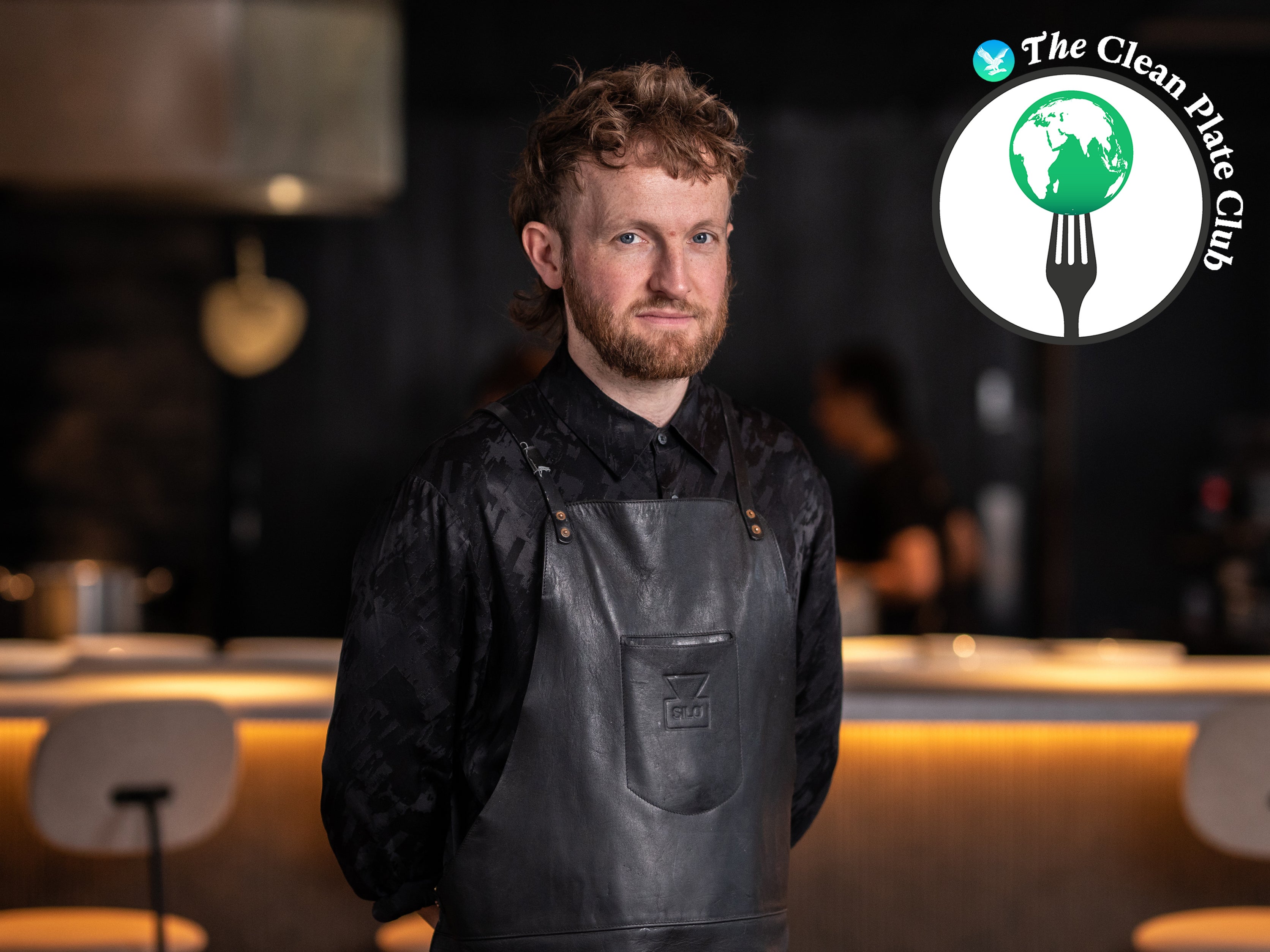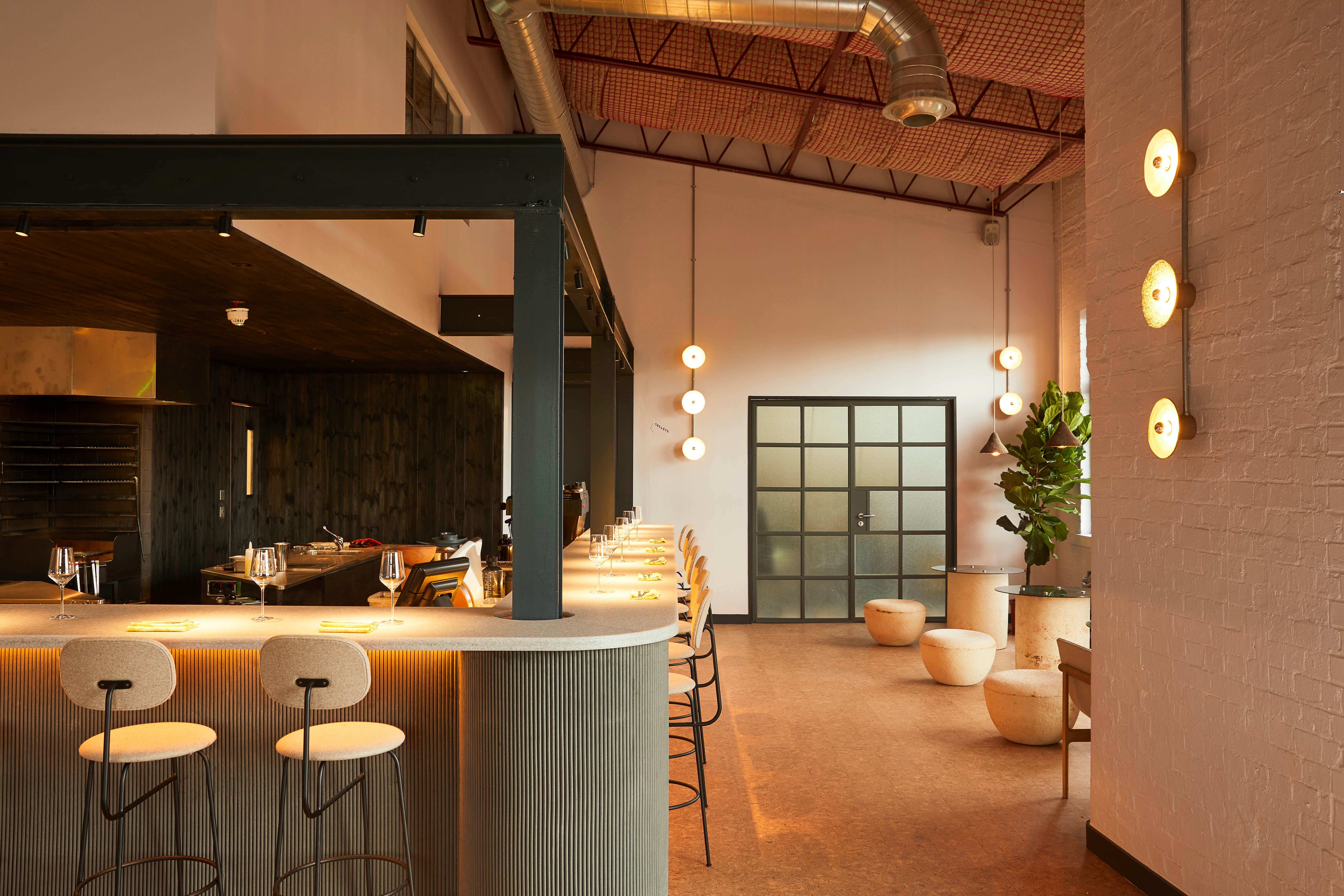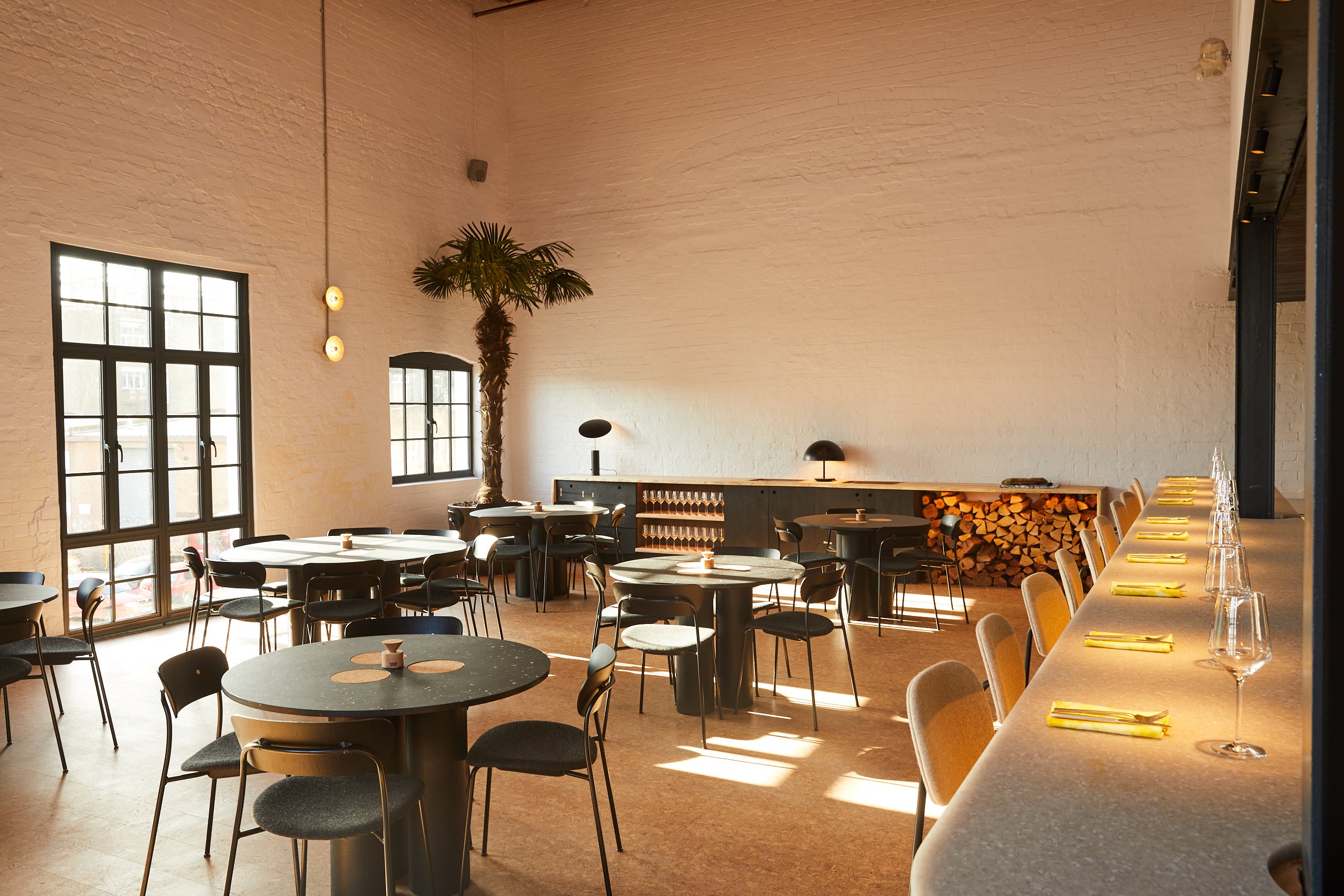Doug McMaster interview: ‘Zero waste is not about the individual’
A decade of learning, experimenting and making mistakes has resulted in McMaster’s restaurant Silo’s impressive closed-loop system. Kate Ng explores the trailblazing chef’s ideas for a future free from waste


Your support helps us to tell the story
From reproductive rights to climate change to Big Tech, The Independent is on the ground when the story is developing. Whether it's investigating the financials of Elon Musk's pro-Trump PAC or producing our latest documentary, 'The A Word', which shines a light on the American women fighting for reproductive rights, we know how important it is to parse out the facts from the messaging.
At such a critical moment in US history, we need reporters on the ground. Your donation allows us to keep sending journalists to speak to both sides of the story.
The Independent is trusted by Americans across the entire political spectrum. And unlike many other quality news outlets, we choose not to lock Americans out of our reporting and analysis with paywalls. We believe quality journalism should be available to everyone, paid for by those who can afford it.
Your support makes all the difference.Food waste is a huge global problem, with millions of tonnes of food being thrown away every year, accounting for eight to 10 per cent of greenhouse gas emissions worldwide. The Independent’s series, The Clean Plate Club, explores what can be done about food waste as the world continues to face up to the climate crisis.
Chef Doug McMaster leads me to the back of his restaurant, Silo, where he opens a cupboard and pulls out a 30-litre jug. In it is two years’ worth of non-recyclable, non-reusable, non-compostable trash the restaurant has accumulated – mostly oven cleaner tablet wrappers, cheese wrappers and a rubber glove with holes in it.
“This is it,” he tells me. “This is the trash we can’t do anything with, so it sits here in this cupboard of mistakes.”
Other “mistakes” include a sack of wine corks (most of which, I discover, aren’t compostable, as they are bound by a non-compostable resin), foil and wire from wine bottles, and other ingredients that have come in non-recyclable packaging.
That’s it. The entire restaurant – which can seat almost 50 people on any given night– operates with the central goal of not having to put anything in the bin.
Silo, which is located in Hackney Wick and overlooks the River Lee Navigation, claims to be the world’s first zero-waste restaurant. Every minute detail of Silo’s closed-loop system has been taken into account, developed over the best part of a decade. It was first founded by McMaster in 2011 as a pop-up in Melbourne before he moved it to Brighton in 2014, and then to London in 2019.

The minimal amount of waste produced by Silo is genuinely remarkable. My own household, which consists of two people and a cat, produces at least five times more waste per week that heads to landfill than the restaurant has produced in two years – and I consider myself an eco-conscious person.
From ensuring the restaurant’s produce comes straight from farms in reusable containers, to dreaming up new ways to cook, ferment or preserve food by-products, to sending inedible waste to be composted, Silo proves that there is a way for the restaurant industry to significantly reduce its food waste. However, McMaster admits, it is “very, very difficult” and has taken a long time to get right.
Once upon a time we weren’t as good as turning fish bones into garum and leek tops into treacle and buttermilk into dulce de leche
It’s only been in recent years that the term “closing the loop” has emerged in the mainstream lexicon, as addressing the climate crisis became one of the dominating topics of our modern times. Closed-loop dining, also known as “circular” dining, is a concept that aims to end the production of waste. Instead of food going into a restaurant and coming out as waste, the idea is to recycle any waste produced back into the supply chain, therefore closing the loop.
This is largely still considered a new concept in the hospitality industry, and while there are a number of restaurants around the world that are beginning to take it on board, only a few operate on the same scale as Silo.
McMaster explains the system he has created, describing it as “relatively simple” – although it quickly becomes apparent it’s anything but. Produce is delivered in reusable crates or steel containers from farms that use regenerative agriculture, an approach that focuses on the conservation and rehabilitation of food and farming systems.
The restaurant then takes that loose produce and prepares it in “very maximal ways, so that we absorb between 95 to 98 per cent of the food”, which goes on the menu in various ways. By products, the parts of produce we typically throw away, is turned into other various ingredients that go into the menu at one point or another.
The things that remain are inedible food waste, such as plate waste from customers, food dropped on the floor, or egg shells and the like, which all go into the compost bin. Silo works with Pale Green Dot, a company that collects food waste from commercial kitchens and turns it into bio-fertiliser and energy, which then goes back to the ground to grow more produce for the following season.
“We used to have a compost machine, which could compost 60kg of food waste every day,” McMaster said. “But we now produce 20kg of food waste a week, it’s so little that turning on the compost machine - which uses an insane amount of energy – just defeats the purpose.
“It’s a brilliant problem to have. Once upon a time we weren’t as good as turning fish bones into garum and leek tops into treacle and buttermilk into dulce de leche.
“We had to learn over the past decade how to turn all these by-products people throw away into, not just good food, but into restaurant-quality food. Systemically, we have excluded the production of waste. It just doesn’t exist in this space.”
It’s easy to feel inspired speaking to McMaster, whose expanse of knowledge and passion for reducing waste makes it seem like it’s something you could do at home. But this isn’t the case, and McMaster is not under any illusion that going zero waste at home is simple or accessible for anyone without the necessary systems in place to support such a lifestyle.
Systemically, we have excluded the production of waste. It just doesn’t exist in this space
Supply chains are where everything we consume starts, and there’s been no systemic intervention to make radical changes in the home kitchen space when it comes to going zero waste. Supermarkets are still “plastic paradise”, there has been little innovation in the home composting arena, and there are no real incentives to cut down on household waste, he says.
“Silo has the luxury and the buying power to get product in massive amounts directly from a farm, so we’re dodging the use of plastic and unnecessary packaging,” he explains.
“But at home, that logistical system falls down. It’s not as if a single person living in a one-bedroom flat has any buying power or the ability to produce from the same sources or in the same amounts. You’re not going to have 100 supply chains with nature at home.”

McMaster points towards bulk stores, or package-free stores as part of the solution, but acknowledges that they often only exist in more gentrified areas, therefore making them inaccessible to large swathes of the population. Apart from being few and far between, there is also the unavoidable problem that bulk stores only carry a limited amount of products and are inconvenient for the general population.
At the end of the day, it’s “not about the consumer, the individual, wanting to be zero waste”, McMaster says.
“Essentially what is required to enable zero waste at home is for a whole network of people or businesses with these values to come online and become easily available to everyone. The more we talk about this, the more awareness there will be and the more demand for action from the bottom up and the top down there will be.”
There is also the defeatist attitude of some members of the public to contend with. Many have asked what the point of trying to cut down on household waste is. When the vast amount of waste comes from food manufacture - estimates from waste charity WRAP suggest that food waste in primary production is higher than from hospitality, food service and retail combined - what difference would one household, or one restaurant make?
“It’s a difficult one, and I totally see where someone who thinks like that is coming from,” McMaster says. “It’s not my place to tell anyone how to live. I like to think that my approach is to just do what I’m doing, and if people are interested, please ask me about it and I’ll share all of my knowledge – but I would never preach.”
This is the other remarkable thing about Silo – you wouldn’t know about its zero-waste philosophy if you didn’t already know before stepping into the restaurant. McMaster says this is done deliberately, with front-of-house staff trained not to talk about anything to do with zero waste or sustainability unless they are asked about it.
It’s unusual for a restaurant to keep mum about its founding principles, given most establishments based on concepts often can’t shut up about them. But McMaster is very firm about “not preaching” sustainability, despite working “doggedly” behind the scenes to ensure Silo is as sustainable as possible.
Quality has to come ever so slightly ahead of sustainability, because if it doesn’t, we’ll stop existing
“It really puts people off,” he says. “People are here to eat good food, this is a treat for them – let them enjoy their experience.
“In my 10 years running Silo, I’ve seen a lot of sustainable restaurants come and go, and I honestly think that one of the reasons we’re thriving is because we lead with quality; quality food, wine, experience.
“Quality has to come ever so slightly ahead of sustainability, because if it doesn’t, sustainable businesses will suffer and then we’ll stop existing. Then what was the point? How sustainable is a bankrupt business?”
McMaster’s book, titled Silo: The Zero Waste Blueprint, provides a roadmap for restaurants to upheave their food systems and plan for a future of limited resources. He also started the Zero Waste Cooking School on Instagram to teach people ways of reducing food and plastic waste in their own kitchens.
His next big mission is a book that will ask us to imagine a world that is zero waste by examining “all the pressure points in the global food system and creating solutions”, he says.
“What if we can apply these solutions to a village? Why not a town, a city, a nation, the planet?”
Join our commenting forum
Join thought-provoking conversations, follow other Independent readers and see their replies
Comments